
20 Mar 2020 | Human Rights and Political Wrongs, Publications
In this paper, which is the revised text of his recent lecture for Policy Exchange’s Judicial Power Project, John Larkin QC reflects on the state of the United Kingdom’s constitution. The paper discusses an aspect of an important provision of the European Convention...
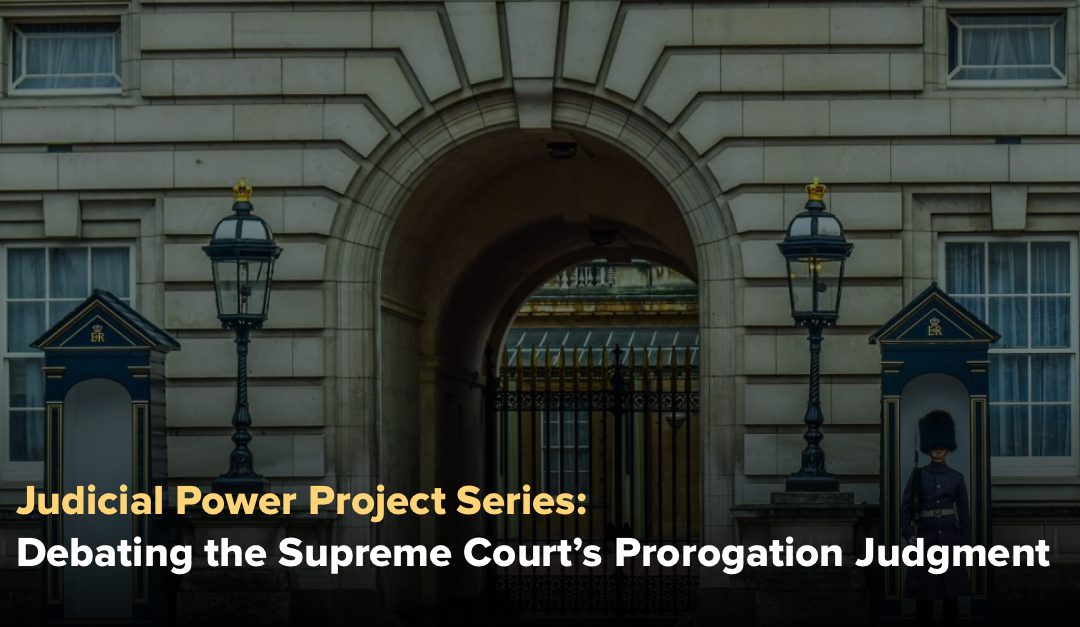
10 Oct 2019 | Debating the Supreme Court’s prorogation judgment
The Supreme Court’s prorogation judgement is the latest episode in a larger parliamentary and judicial effort to dampen the strength of the executive in constitution. This is not to deny the constitutional significance (or novelty) of the judgement, but it does raise...
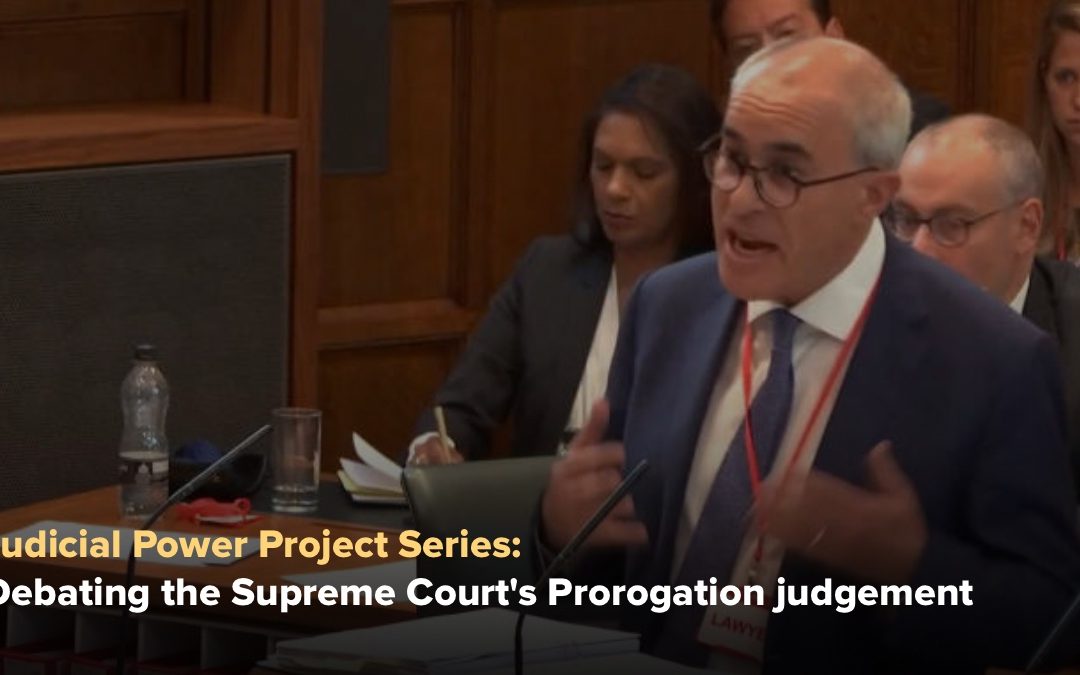
4 Oct 2019 | Debating the Supreme Court’s prorogation judgment
The prorogation of Parliament or the advice on which such prorogation was based has not, historically, been thought to have been justiciable. The Supreme Court has decided that it is justiciable but determines that question not separately or as a preliminary issue but...
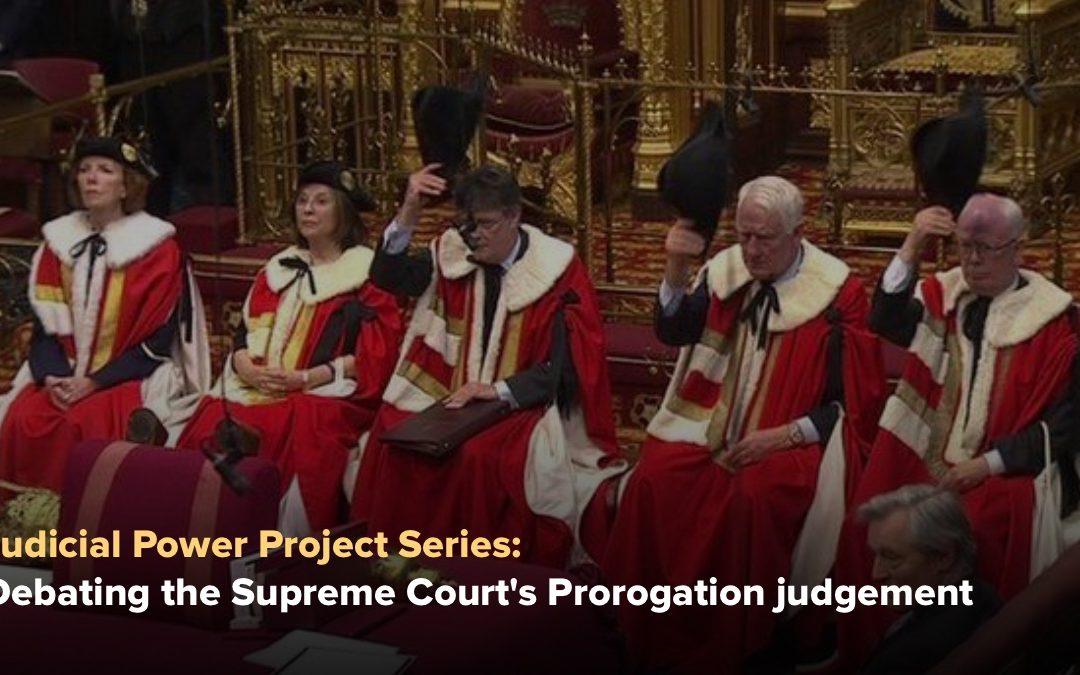
4 Oct 2019 | Debating the Supreme Court’s prorogation judgment
In Cherry/Miller, the Supreme Court chose to change the law by creating a new legal limitation on the prerogative to prorogue Parliament. Whether one thinks the Court was within its rights to change the law, the judgment was, from a practical point of view, clearly...
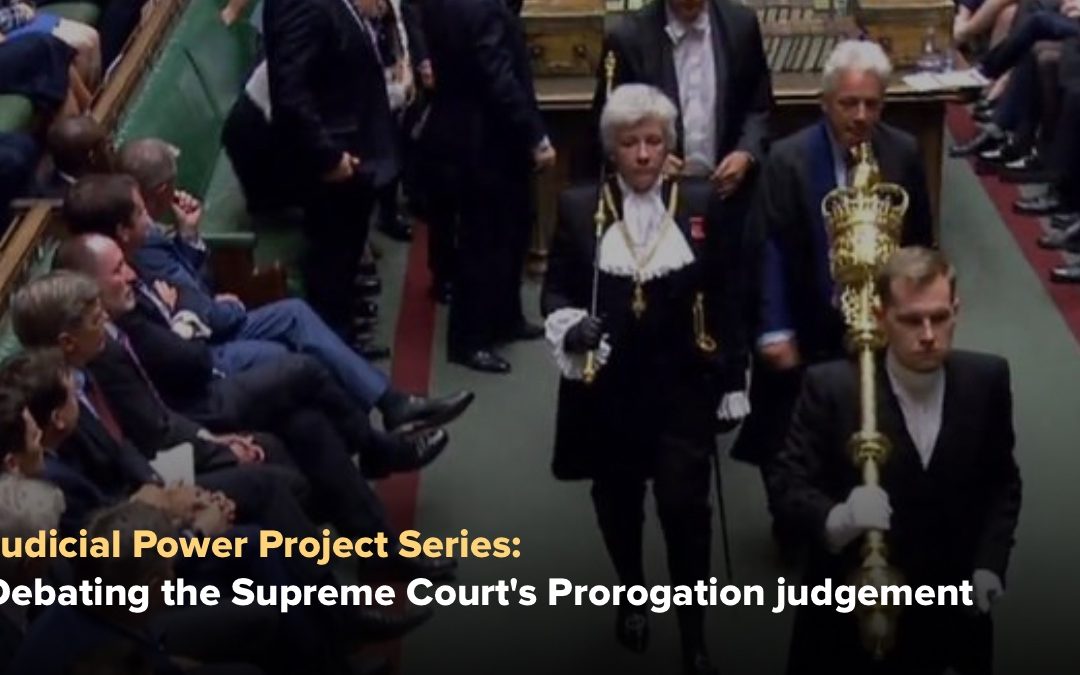
4 Oct 2019 | Debating the Supreme Court’s prorogation judgment
The UK Supreme Court’s decision last week that Prime Minister Boris Johnson’s prorogation of Parliament was unlawful is an unprecedented judicial interference in matters concerning prerogative and will undoubtedly be subject to debate for some time. While any analysis...
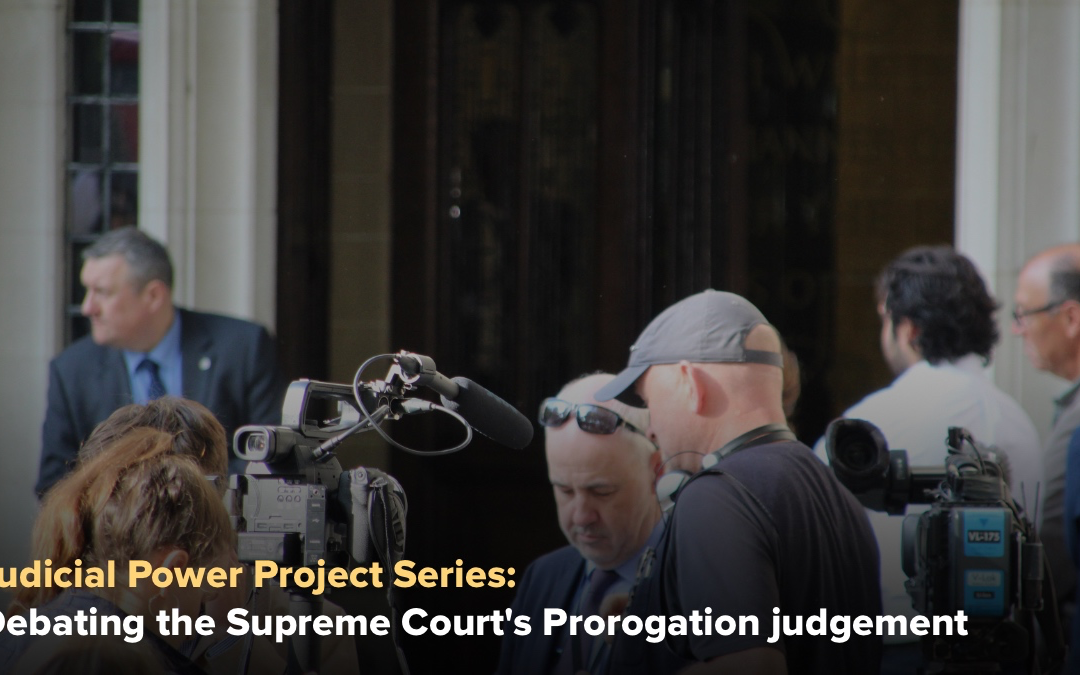
3 Oct 2019 | Debating the Supreme Court’s prorogation judgment
Prior to the Supreme Court’s judgment, there was much speculation as to exactly how the Supreme Court would divide – 8:3, 7:4 or even 6:5 – and considerable speculation as to who would be on which side in the light of the questions posed and previous decisions made by...

3 Oct 2019 | Debating the Supreme Court’s prorogation judgment
The Supreme Court’s decision in Miller/Cherry that suspending Parliament was unlawful is an extraordinary contribution to a long term trend in Western countries: the judicialisation of politics, that is, the transfer of political, social and economic issues form...
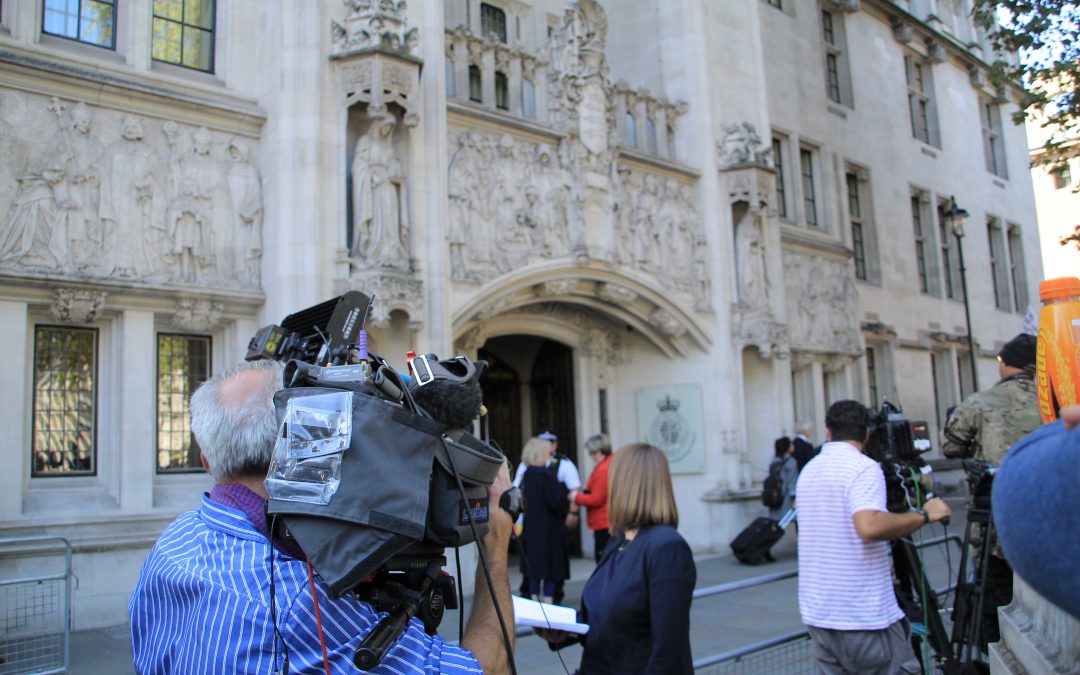
2 Oct 2019 | Judicial Review and Judicial Independence, Publications
The Supreme Court’s judgment in Miller/Cherry [2019] UKSC 41 holds that Parliamentary sovereignty needs to be judicially protected against the power of the Government to prorogue Parliament. But the Judgment itself undercuts the genuine sovereignty of Parliament by...
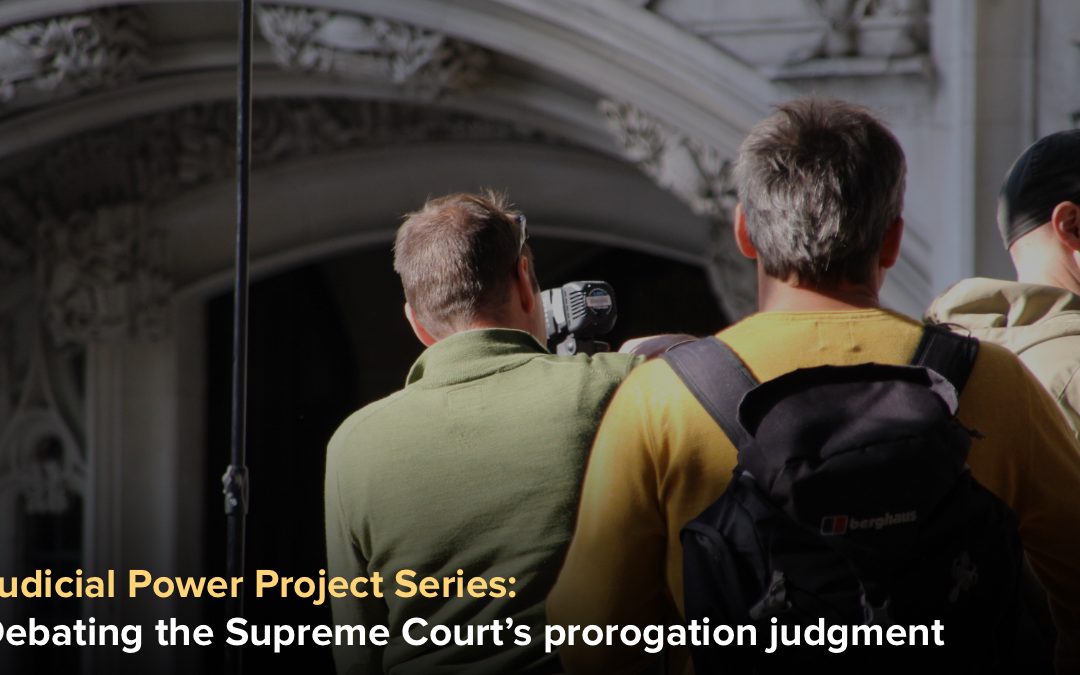
1 Oct 2019 | Debating the Supreme Court’s prorogation judgment
The core of the task facing the Supreme Court in Cherry/Miller was to interpret and apply constitutional and legal principles. One of the striking things about the judgment is the forthrightness with which the justices set out their collective view about how the...
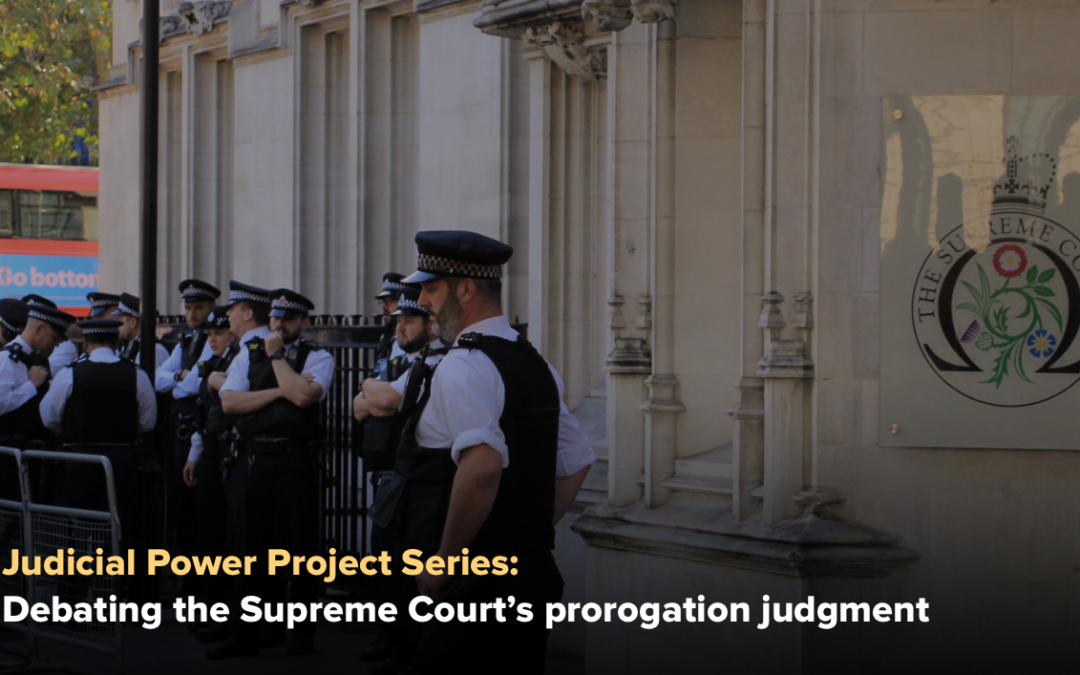
30 Sep 2019 | Debating the Supreme Court’s prorogation judgment
In Bush v Gore (2004) the US Supreme Court stopped Florida’s recount of votes in the presidential election, sealing George Bush’s slim lead. After time for reflection, influential US scholars argued that the case should have been treated as a political question, since...
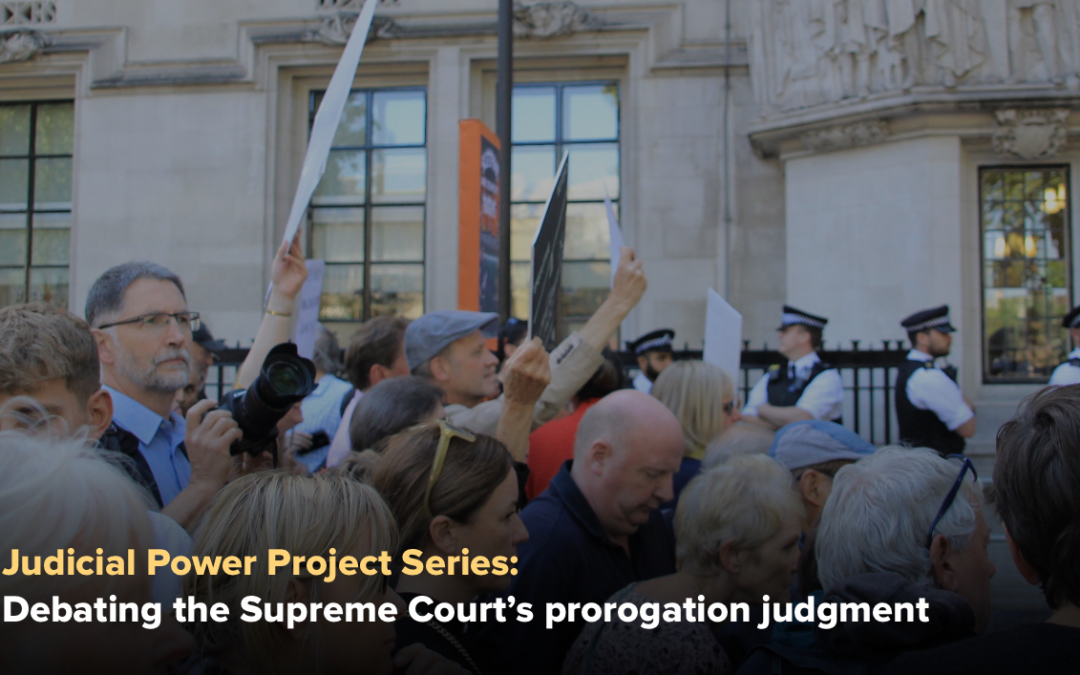
30 Sep 2019 | Debating the Supreme Court’s prorogation judgment
Some cases end up deciding much more in retrospect than they did at the time they were decided. The case of Anisminic [1969] 2 AC 147 (HL) comes to mind as one of the clearest examples of such a case in public law, with later courts taking the judgment to be grounds...

30 Sep 2019 | Debating the Supreme Court’s prorogation judgment
The Government’s decision to use the prorogation power for questionable political purposes was a provocation to the courts. Unfortunately, the Supreme Court’s understandable discomfort with the Government’s move led it to search for, and ultimately create, a legal...

30 Sep 2019 | Debating the Supreme Court’s prorogation judgment
The prorogation case is undoubtedly the most challenging that the Supreme Court has had to deal with so far in its relatively short history, involving a high-stakes dispute in extremely politicised territory in which there was a real risk to the court’s authority. It...
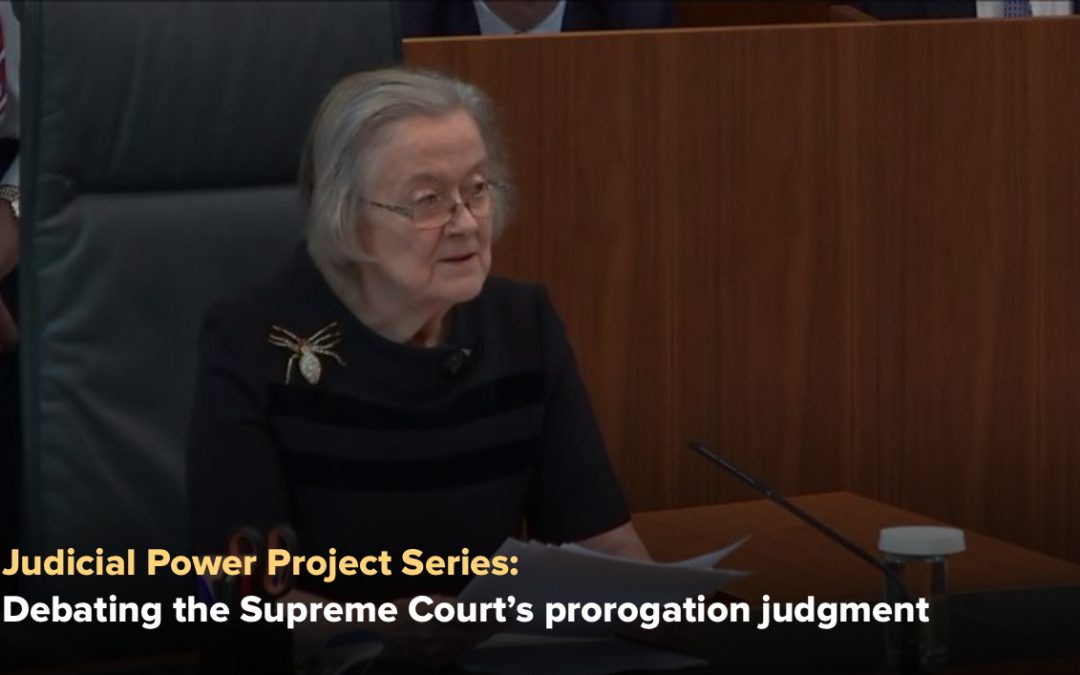
29 Sep 2019 | Debating the Supreme Court’s prorogation judgment
The Supreme Court’s decision in Miller v Prime Ministerand Cherry v The Advocate Generalis to be welcomed. It demonstrates a delicate balance between law and politics, affirming the Supreme Court’s role as the guardian of the UK’s constitution. The Supreme Court...

29 Sep 2019 | Debating the Supreme Court’s prorogation judgment
In Miller (No 2), the Supreme Court held that article 9 is intended to protect freedom of speech and debate in the Houses and their committees and the right of the Houses to manage their own affairs without external interference. While prorogation may take place...

29 Sep 2019 | Debating the Supreme Court’s prorogation judgment
North and south of the Border, the courts at first instance dismissed the Miller/Cherry claims in short order as non-justiciable. Miller proceeded directly to the Supreme Court by virtue of the “leapfrog” procedure. Cherry, however, was appealed to the Inner House of...

29 Sep 2019 | Debating the Supreme Court’s prorogation judgment
Did the Supreme Court get Miller right? The case was certainly one in which the judges developed, as opposed to merely applied, the law. Even the very best lawyer could not have known for sure whether the judges would conclude that the abuse of the prerogative – and...
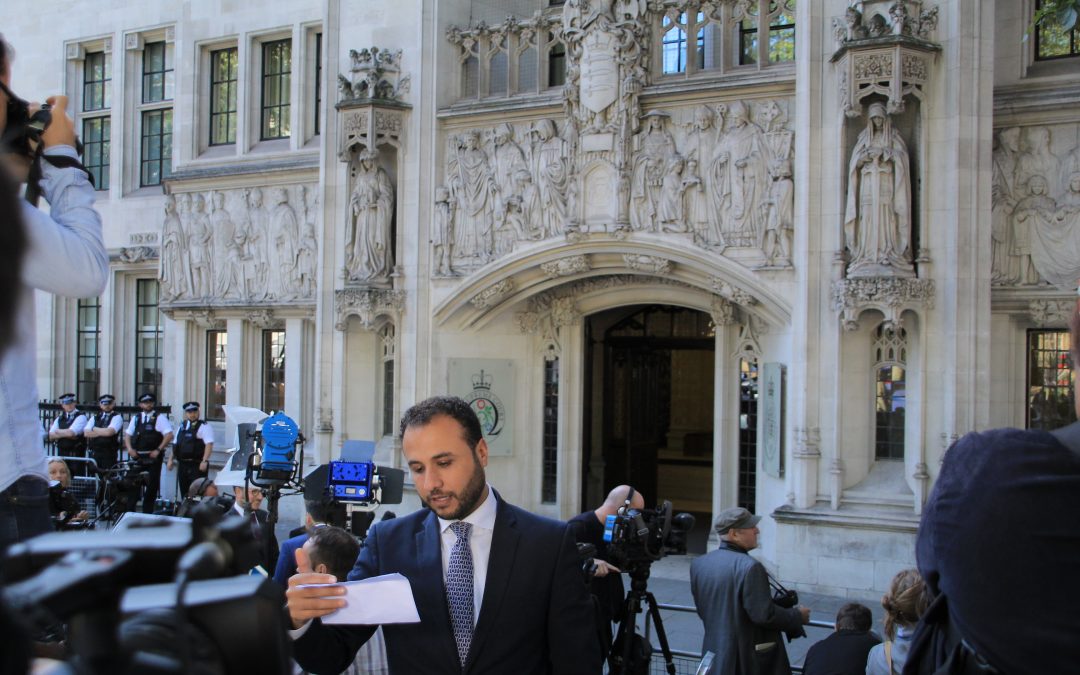
29 Sep 2019 | Debating the Supreme Court’s prorogation judgment
The Supreme Court’s judgment in Miller/Cherry[2019] UKSC 41, holding that Parliament was not prorogued on 10 September, is by any measure a momentous judgment. Policy Exchange’s Judicial Power Project commented on the litigation before this judgment was handed down,...
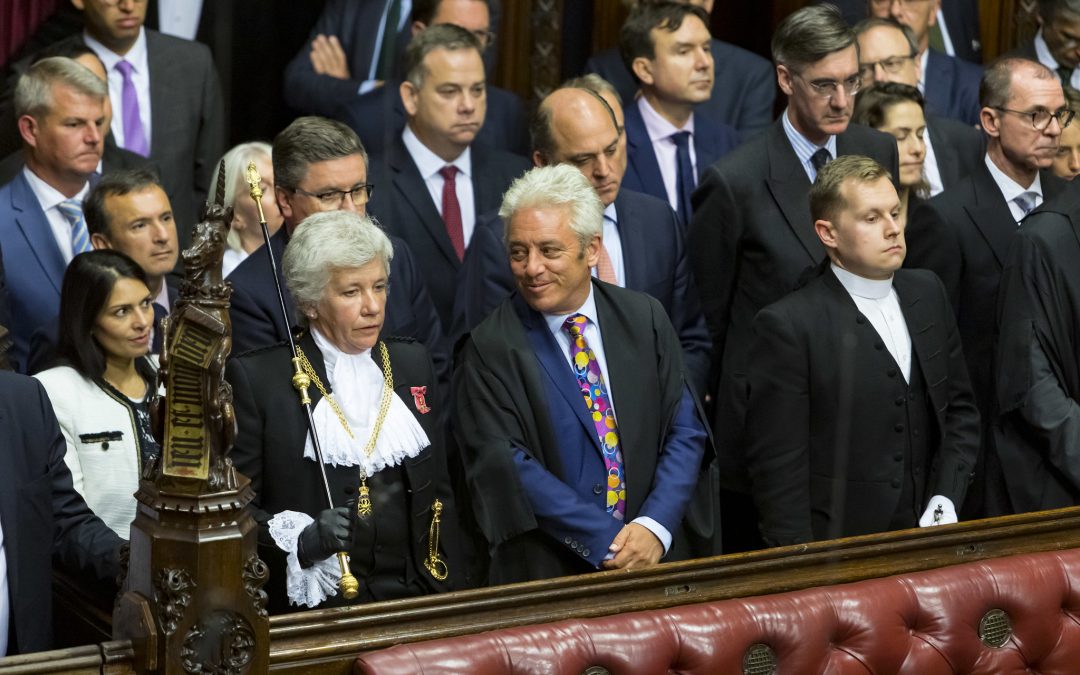
17 Sep 2019 | Judicial Review and Judicial Independence, Publications
This paper addresses the question of whether the Supreme Court should rule that the Government’s advice to Her Majesty to prorogue Parliament was unlawful. It argues that the prerogative power to prorogue Parliament is not subject to judicial control. Proroguing...

21 Jun 2019 | Commentary on Lord Sumption's Reith Lectures
In his fifth and final Reith lecture, “Shifting the Foundations”, Jonathan Sumption brings to a conclusion his reflections on “the decline of politics and the rise of law to fill the void”. The lecture encourages us to resist calls for a written constitution, calls...

18 Jun 2019 | Commentary on Lord Sumption's Reith Lectures
In his fourth Reith lecture, entitled “Rights and the Ideal Constitution”, Jonathan Sumption turns to the American experience of struggling to reconcile democracy with rights adjudication. It is a cautionary tale, illustrating some of the damaging political...
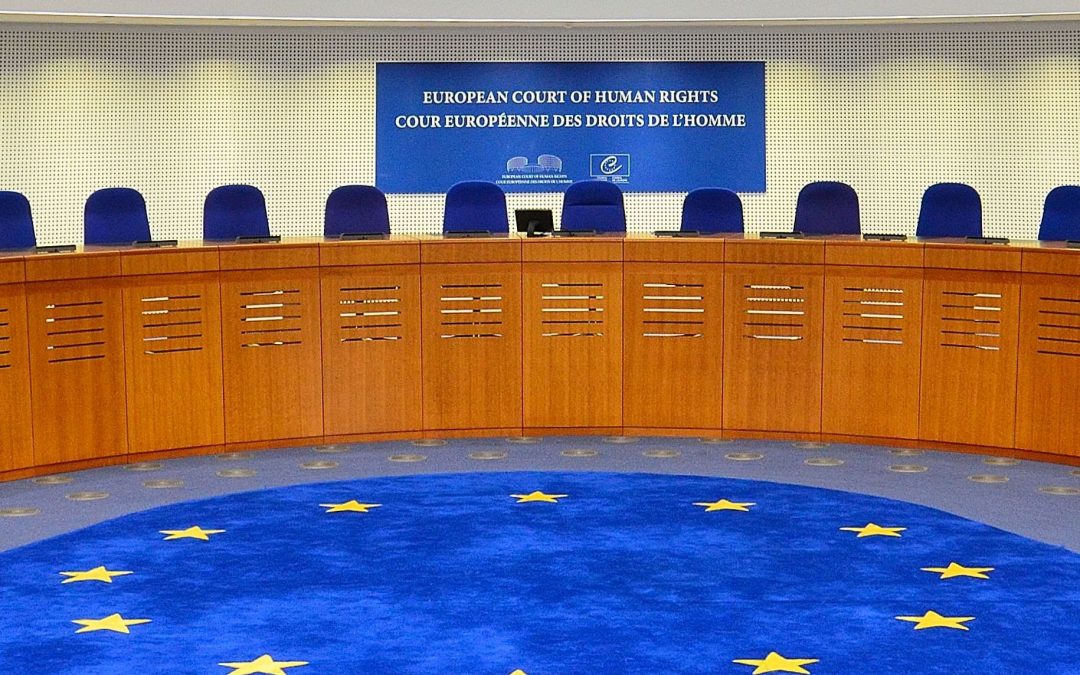
7 Jun 2019 | Commentary on Lord Sumption's Reith Lectures
In his third Reith lecture, broadcast yesterday and entitled “Human Rights and Wrongs”, Jonathan Sumption examines international human rights law, “the main battleground between law and politics”. His strategy is to consider the nature of rights before explaining...

30 May 2019 | Commentary on Lord Sumption's Reith Lectures
In his second Reith lecture, “In Praise of Politics”, broadcast on Tuesday, Jonathan Sumption aims “to make the case for the political process, with all its imperfections.” He develops a forceful argument for the capacity of representative politics to secure...

22 May 2019 | Commentary on Lord Sumption's Reith Lectures
Judges are ever more significant in our public life. This was true before the Brexit process began and it will remain true even if the UK leaves the EU. Courts, domestic and European, have come to exercise ever more authority over an ever wider range of public...

14 Feb 2019 | Legislated Rights
The guiding aim of legislatures should be to protect and promote human rights. This might seem a common sense or obvious proposition. But there are some theorists and judges who reject it, holding that human rights are the province of courts while the task of...

14 Feb 2019 | Legislated Rights
Legislated Rights makes an important contribution to contemporary rights scholarship. Taking the Universal Declaration of Human Rights as its starting point, it explores how legislatures can and should play an active role in ensuring that people enjoy rights, not just...

14 Feb 2019 | Legislated Rights
The central thesis of this profound and thoughtful book is the crucial role of the legislature in securing and promoting human rights. The arguments command strong assent. There are many, many parts of it which are fundamental and devastating. There is, however, an...

14 Feb 2019 | Legislated Rights
I very much welcome the book’s overall theme that legislation gives effect to and protects human rights. It seems incredible that the UK’s leading judge should have thought that until the advent of the European Convention of Human Rights in 1951 UK law did not...

14 Feb 2019 | Legislated Rights
Legislated Rights is an important and essential addition to the library of anyone seeking to better understand the potential role of and justification for legislatures engaging in the protection and promotion of human rights. By skillfully explaining and building upon...

14 Feb 2019 | Legislated Rights
Legislated Rights: Securing Human Rights through Legislation challenges ideas that find ready support in the case law of European and Commonwealth courts and the academic literature. We are grateful to our distinguished commentators, who have a wealth of judicial...































